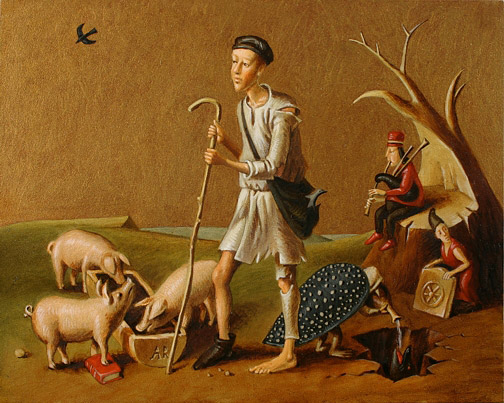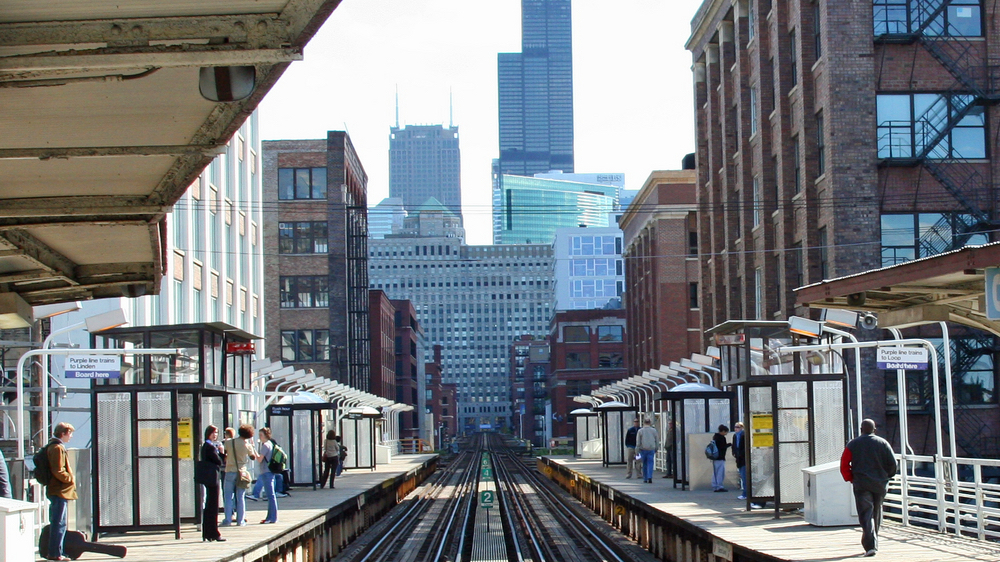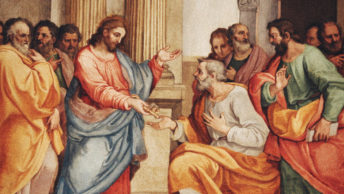By coincidence, today’s gospel account (Mt 20:1-16) is read in years during the time that the United Automobile Workers union is in contract negotiations with automakers, particularly Ford, General Motors, and Chrysler. As always, the main question has to do with fairness. What is a fair wage scale, and what is fair when it comes to the cost of fringe benefits for their workers? And what about seniority status and retirement benefits?
The big question we are all facing these days is centered around fairness. What is fair when it comes to bringing recovery to our staggering economy? Should taxes be raised? If so, what is the fair share that each of us should pay, how is the tax burden to be borne and by whom?
In the minds of many, the Gospel for the 25th Sunday in Ordinary Time raises questions about God’s mercy! Isn’t God too generous when He shows His mercy to sinners?
The parable raises some critical questions both for believers as well as those who are questing faith and are trying to find out who God really is. There are other parables along similar lines with this one that are equally as hard to fathom. Take for example the parable of the prodigal son. The critical question in today’s Gospel account is: What do we do with those who went out to work at dawn, the ones who worked so hard, who bore the heavy burdens of the day’s work and then received the same wage as the last group who only had an hour’s work? Or how do we see the elder son who had to watch the prodigal son get the big feast even though he had stayed at home, remaining in His father’s house while following all the rules?
The questions raised are manifold. Doesn’t God’s mercy knock the pins out from under morality? Why should we observe all the rules of morality if God is going to forgive everybody anyway? Another question that is raised is about justice. Is there no justice in God’s ways if everybody, saint and sinner alike, receives the same reward at the end of their lives?
In attempting to answer the questions raised by these parables the first thing we must do is put behind us all feelings of jealously, envy, and self-pity, along with sort of “an eye for an eye and a tooth for a tooth” mind set. Also we must set aside all standards of human justice. The justice of God is not the justice of man. Our ways are not God’s ways. Our God is the God who justifies sinners, people just like us, and He has His ways in doing so. God is not like our symbol of human justice — the blindfolded woman holding a sword in one hand and a set of scales in the other.
Once we have put aside our feelings of jealously and envy, once we stop judging God’s mercy, and once we have put to rest our propensity to critically question God’s intentions, then we can turn to the first part of the answer, the part that deals with justice. In many counseling situations I have had I’ve talked with people who are extremely upset with themselves and who judge themselves very harshly and critically because others around them seem to be more favored by God than they. “Why is it, Father, they ask, “that my friends have greater gifts than I do? Why are they always so close to the Lord and I am not? Why is God always doing things for them and I seem to be so distant from the Lord? Why are others more talented and gifted than I and have more friends than I do?” Mind you, these question are not always couched in jealousy or envy, rather many times they are couched in terms of self-condemnation. Self-condemnation is one of the most insidious works of the devil.
The proper response in such situations is to bring them to where they drop the measuring scales of justice held by the blindfolded lady with the sword. They, and we with them, need to think in terms the God who, because of Jesus Christ, is justifying sinners. We need to pay attention to our own justification in God’s mercy. Comparison with others is always odious. Who authenticates you? No one but God, and God alone! Who justifies you? God and God alone! Do not judge His love or measure His work within you by comparing yourself with others. Such comparisons can lead to spiritual pride or to spiritual despair. Comparisons can likewise lead to gossiping, back-biting, envy, jealously, and destruction of the peace and communion God has in mind for all of our relationships with all of those around us.
Having then put down the measuring scales of human justice, what do we then do in addressing the questions raised in the parables? Many resort to the economic approach and devise a system whereby we think we can earn God’s favor. This approach counsels us to toil and labor in such a way that if we work hard enough God will be obliged to give us His love because we have earned it. He cannot deny us, we think, because through a hard fought life we claim we have earned it and therefore deserve it. Again, however, God will thwart us and tell us that as high as the heavens are above the earth so to His ways are above our ways. No one of us can earn God’s love just as no one of us can earn the love of another human being. Love is neither the subject of justice nor of economics. There is no price tag on it. It cannot be bought, just as it cannot be sold. When it comes to the earning theory we all get the same wage; the one who went to work in the first hour of the day receives the same wage as the one who went to work in the last hour of the day. The prodigal son and the elder son who stayed at home share equally in their father’s love and their father’s goods.
With what, then, are we left? We are left, my friends, with the glory the beauty of working not to save our own skins, not for our own justification, but of working hard to love others and working for their salvation. The owner’s vineyard is the field of human relationships in which we labor and toil unselfishly for the good of others, not for our own rights or our favored relationship with God. What we are left with is a system of morality, of ethics, and of behavior that gives us glory and dignity insofar as we love our enemies, do good to those who hurt us, throw aside human justice and economics while simply and humbly living as Christ did, for the sake of others that they might develop and grow. We live in a system wherein, like the Good Samaritan, the strong stop by the wayside and share their strength with the weak. Just as the Samaritan stopped to share his strength with the battered and victimized man lying helpless in the ditch, so we live to do the same, whether it be the sharing of our surplus wealth or the overflowing excesses of God’s graces within us… His mercy and forgiveness included.
The workers in God’s vineyard ought to be working for the sake of others, not simply for their own gain. The toil described by St. Paul in his letter to the Philippians (20-24, 27) which we read in today’s second reading, is a labor of love for the sake of others. Paul frankly confesses that he would rather be dead, that dying would be for his own gain since he would be with Christ in heaven. But he goes on living in the flesh while toiling in the vineyard for the sake of those whom he loves rather than for the sake of his own comfort and gain. This is the true posture and the genuine attitude the Christian. Rejoice with me, says God our Father, because my Son who was dead has come back to life. All of your work and all of your devotion redounds to His risen life. Besides, you haven’t lost a thing. Instead you’ve gained a brother or a sister. Or are you jealous and envious because you have to share all of these good things with them? Did you stay at home remaining faithful to me and do all of the work that you did just so you could keep it all to yourself?
This, my friends, is the ultimate foundation of morality and of any ethical system. We keep our behavior good, not simply for our own sake but for the sake of others, be they friend or enemy, be they Catholic or Protestant, be they Jew, or Arab, or Gentile, be they male or female. Isaiah tells us in the first reading: “Let the scoundrel forsake his way, and the wicked man his thoughts; let him turn to the Lord for mercy, to our God, who is generous in forgiving.” Well, my friends, how are they to know that God is generous and forgiving unless He is manifested to the wicked, manifested by we who are members of the Body of Christ? His temple built of living flesh, our flesh, offers God’s presence and God’s ways to men and women who need to see and receive His mercy, His generosity, and His forgiveness.
Far from being cheated, far from being denied justice, far from being defrauded of your wages, you, the sons and daughters of God, whether you yourselves are the prodigals, or whether you have been the faithful ones who stayed at home and worked hard in your Father’s vineyard, you the little ones, the one’s with little fame and no renown, you are the hidden power and glory of Christ. For you are the signs of contradiction, you are the hidden Christ tucked deep down within the guts of all that is human. You are God’s salt, God’s seed, and God’s productive toil for the salvation of those who are lost but nevertheless destined, just as you are, to share in His limitless and measureless Love. You are infinitely blessed with God’s gifts! [25th Sunday in Ordinary Time- A]








